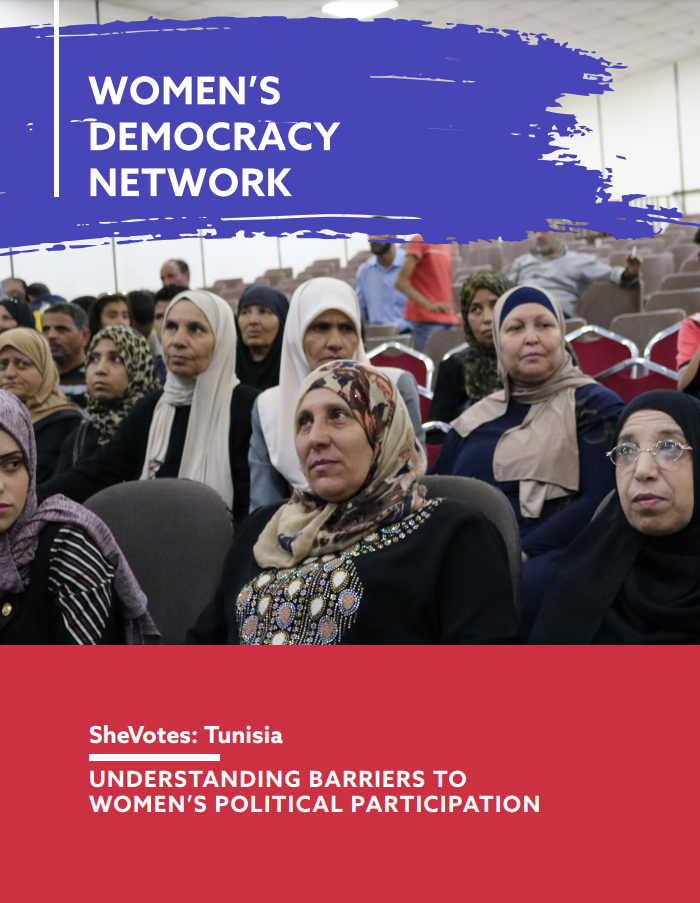SheVotes: Tunisia Understanding Barriers to Women’s Political Engagement in Tunisia

Tunisia has pioneered women’s rights in the Arab world by abolishing polygamy, creating a civil judicial process for divorce and requiring mutual consent for divorce. Tunisia is also one of the few Arab countries to introduce gender parity in its electoral system, making it a pillar of its national development strategy. With women winning 47 percent of municipal council positions in 2018, Tunisia’s new system has resulted in some of the highest representation of women in legislature compared to any other African or Middle Eastern state. However, there remain few female leaders in Tunisia’s national government and, with few exceptions, women have not been able to take on prominent leadership roles in political parties.
To provide insights into women’s political participation in Tunisia and their views on politics and the electoral process, the International Republican Institute (IRI) conducted a qualitative study on the barriers to women’s political participation and how, if at all, those barriers have changed from the 2014 to the 2018 elections.
Methodology
This report presents the results of focus group discussions (FGDs) and in-depth interviews (IDIs) from February 11 to 22, 2019. In total, six FGDs and 14 IDIs were conducted with one FGD and three IDIs in Gafsa; one FGD and two IDIs in Monastir; and four FGDs and nine IDIs in Tunis. Focus groups in Gafsa and Monastir were conducted with a diverse cross-section of women. In Tunis, focus groups were conducted for women over 30 years old, young women 30 years old and under, women from the district with the lowest voter turnout, and with individuals (both male and female) who represent civil society organizations working in elections. In total, more than 60 participants took part in these discussions. The main objective of the study was to assess barriers to women’s political participation in Tunisia. The research included six focus groups, with eight to 12 participants per session. Recruitment criteria were designed to understand women’s experiences in the lead up to and during municipal elections in Tunisia and to facilitate open discussions among peers. Focus group participants were selected via street recruitment using a recruitment screening questionnaire. The duration of each session was around 120 minutes. As common with qualitative research, findings from this study do not necessarily represent the views of Tunisian women in general.
Top